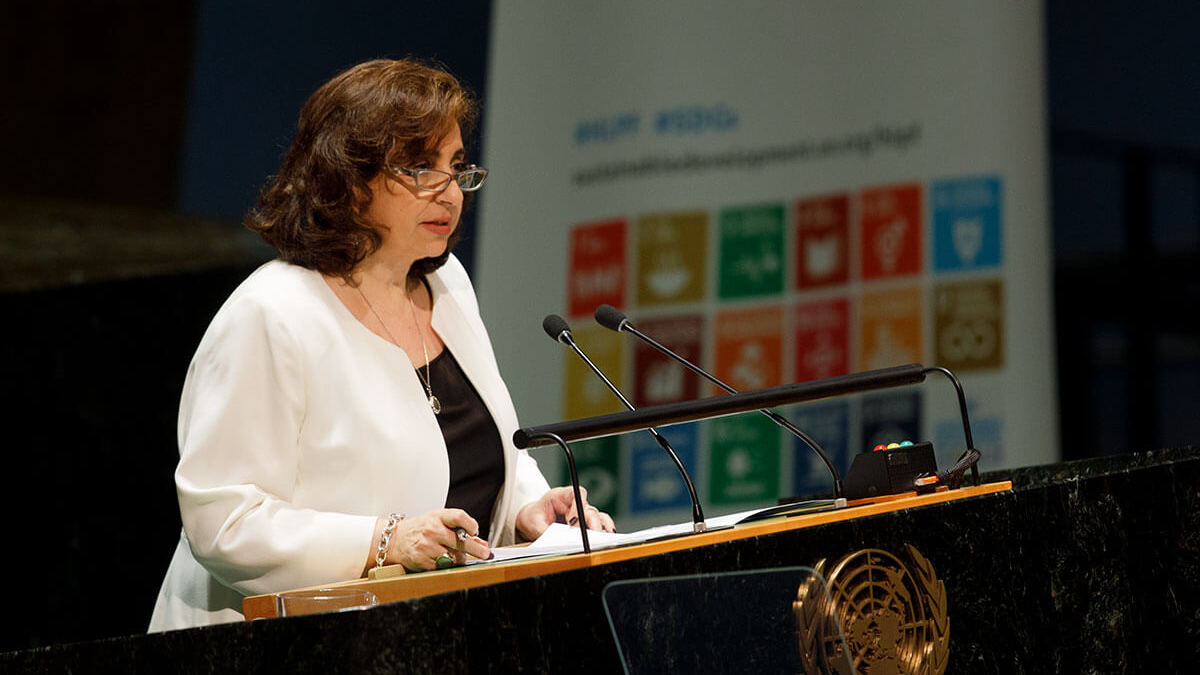Moving past 2022’s setbacks to gender equality and women rights protection
UN Women executive director, Sima Bahous, reviews the organization’s global efforts to safeguard women rights and highlights the additional toll of crises on women.
On February 13, 2023, in an opening statement to the UN Women Executive Board, Executive Director Sima Bahous put forth that “The struggle for gender equality is a reality for women everywhere.” She went over the state of gender equality in various countries, explaining: “Everywhere, crises continue to exact their highest toll on women and girls.” Bahous noted that at the current pace, equality is “300 years away.”
UN Women’s programs are administered by employing local women and empowering them to provide for themselves and their families. However, 2022 has been dominated by setbacks, such as the Taliban’s bans on women from working in non-governmental organizations (NGOs), pursuing secondary and further education, free movement without a male relative, and access to public spaces and services without being fully covered. The ban regarding NGOs causes women to be “[cut] out of the last remaining sector—[the humanitarian sector]—where they were prominent, highly visible, and could continue to hold leadership roles,” explains a UN Gender Alert report. This enables the Taliban to enforce “subordination of women across all spheres of life.”
The UN Gender Alert report reveals that the ban on women from NGO employment compounds existing crises in Afghanistan, where 97 per cent of the population are at risk of becoming impoverished, and 11.6 million women and girls will require assistance from humanitarian initiatives for the year of 2023. After the ban, national and international NGOs halted or slowed down humanitarian work, including but not limited to the distribution of food and medicine, sanitation and hygiene projects, as well as education and livelihood training initiatives.
Bahous also outlined UN Women’s continuing efforts for Afghan women’s rights, such as the formation of the Afghan Women’s Advisory Group—which allows Afghan women to contribute in humanitarian response planning. Likewise, the organization will be cooperating with regional players, such as the Organisation of Islamic Cooperation member states, to drive change in the state of women rights in Afghanistan.
Beyond the Central Asian country, UN Women invested additional resources in Ukraine over the year since the Russo-Ukrainian War commenced, supporting refugees through their Women’s Leadership, Empowerment, Access, and Protection program—which focuses on building resilience. A recent UN Women press release revealed that women bear “different and additional burdens of conflict,” such as increasing occurrence of human trafficking and skyrocketing rates of sexual violence.
During her mission to Tanzania back in October 2022, Bahous saw the results of UN Women’s joint program with the International Fund for Agricultural Development, the Food and Agricultural Organization, and the World Food Program, that supports rural woman to pursue climate-smart agriculture. Simultaneously, she witnessed women lead projects to address issues such as the HIV epidemic in Africa. Bahous noted that the success of these programs reflects the importance of women participation in UN Women efforts, as well as the vitality of coordinating other organizations.
In November 2022, the annual 16 Days of Activism against Gender-Based Violence campaign highlighted the adverse treatment and unfortunate fates of female human rights activists in some places across the world. Notably, the rising rates of femicide in Ecuador drew global attention in late 2022, when a female lawyer was murdered near a police academy. Taking place between March 6 to 17, 2023, the 67th session of the Commission on the Status of Women will focus on global digitalization. The meeting will include discussions about digitalization’s potential of improving social, economic, and political conditions for women and girls, as well as its risk of deepening existing gender biases.
Bahous noted that 2023 is shaping up to be a challenging year for women’s rights, and a new crisis has already emerged with the earthquake in Türkiye and Syria. Regardless, she sees many opportunities to strengthen UN Women through greater transparency and improved coordination, thus enabling the organization to move forwards with its visions. “The challenges of 2022 asked more of us, but together we rose through them. I know we will do the same this year,” concluded Bahous.

